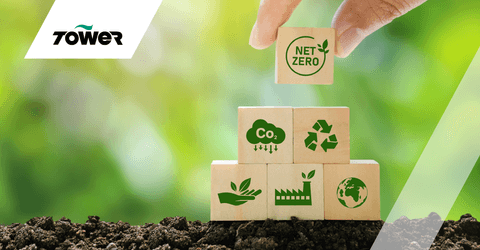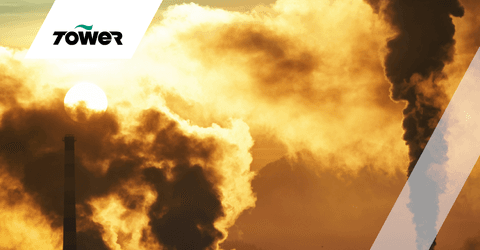

It can’t be denied. We’ve seen a global shift towards a more sustainable way of living. People are now paying much closer attention to the effect they have on the planet. And for businesses around the world, there is a new sense of urgency to reduce harmful emissions reflected in Scopes 1, 2 & 3.
The Intergovernmental Panel on Climate Change (IPCC) is also recommending that affluent countries bring forward their Net Zero targets closer to 2040[1]. That makes decarbonisation strategies instrumental in building a healthy future for everyone.
But what are Scope 3 emissions? And what makes them much more of a challenge for businesses compared to Scopes 1 and 2?
Scope 3 emissions are the greenhouse gasses produced indirectly because of the company’s upstream and downstream activities. These indirect emissions are different to the emissions produced in Scope 2, as they are the result of customers using the company’s products or produced by suppliers making products that the company then uses.
Scope 3 emissions can account for more than 70% of an organisation’s emissions. It’s no surprise then that Scope 3 is the biggest challenge a business needs to overcome on its Net Zero journey. But one company’s Scope 3 emissions can overlap with another emission. When one company makes a change which impacts its greenhouse gas emissions, many other businesses could also benefit.
That makes focussing on Scope 3 a win-win for businesses. And it’s likely our quickest path to Net Zero.
The UK has already managed a 42% reduction in greenhouse gas emissions[2]. While the UK Net Zero targets are some of the most ambitious worldwide, the country’s optimism has been encouraging[3].
When businesses like Tower commit to carbon reduction and make plans for Scope 1, 2 & 3 emissions to be reduced, it all contributes to helping the UK’s overall goals.
Addressing Scope 3 emissions advances your decarbonisation strategy and help you better map out your sustainability journey. Measuring and tracking key emissions allows organisations to clearly see what areas they need to prioritise for best success and put a strategy in place to keep to their science-based targets.
At Tower, we have decided that decarbonisation is the priority and intend to move forward by using our reduction strategies to help inform our product procurement. As well as encourage innovation for more sustainable product solutions.
By focusing on decarbonisation and encouraging innovation, we can begin to make a genuine quantifiable change. All Scope 3 achievements contribute to national efforts towards the Net Zero goal for a greener future.

Reporting on your Scope 3 emissions is an effective way to demonstrate that you understand and care about your environmental impact[4]. Being transparent about all our Scope emissions with our customers and partners proves we are conscious of our carbon footprint. To find out more about our journey to Net Zero take a look at our sustainability page, or contact one of our sustainability champions.
Sources